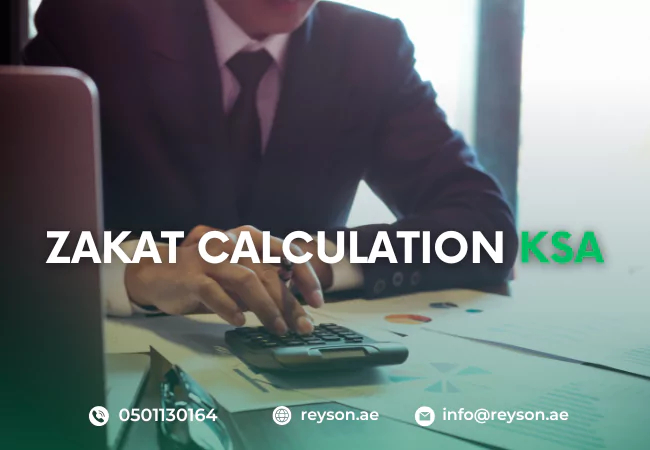
Zakat is a fundamental pillar of Islam that refers to the mandatory charitable giving by financially stable Muslims to support the less fortunate members of society. One of the Five Pillars of Islam, along with faith, prayer, fasting, and pilgrimage, is this belief. The word "Zakat" translates to "purification" or "growth," signifying the purification of one's wealth and the growth of blessings through charitable acts. For those interested in learning more about zakat calculation in Saudi Arabia, the process typically involves determining if your assets meet the Nisab (minimum threshold) and then applying the standard Zakat rate of 2.5% to the eligible assets. It's important to consult with a qualified Islamic scholar or a reliable Zakat calculator to ensure an accurate calculation.

In Islam, Zakat holds immense significance as it serves multiple purposes. It helps share wealth among the community, alleviates poverty, strengthens social cohesion, and fosters empathy and compassion among believers. By fulfilling their Zakat obligation, Muslims show their commitment to social justice and solidarity with those in need.
Saudi Arabia has a well-defined system for Zakat collection and distribution, overseen by authorities to ensure fairness and transparency. This system plays a crucial role in supporting various charitable initiatives, welfare programs, and community development projects across the country.
When calculating Zakat, Muslims look at the money and other valuable things they've had for a whole year in the Hijri calendar. This means that if someone got money on the 1st of Ramadan one year, they would count Zakat on that money when the next Ramadan comes, but only if they still have that money after one year in the Hijri calendar.
This way makes sure that Zakat is given on money that's been kept for a good amount of time. It shows the idea of sharing wealth with people who need it and being fair about it. It helps keep Zakat calculations fair and consistent over different times.Following these rules helps Muslims give Zakat in a good way, helping others and being responsible in their religion.
The Zakat rate is 2.5%. This means that Muslims who have to pay Zakat give away 2.5% of what they own that qualifies for Zakat. It's the same percentage for everything that counts for Zakat, like money, gold, silver, things for business, and more. So, no matter what type of asset you have, the Zakat you give stays at 2.5% of everything you've had for a whole year in the Hijri calendar
In Saudi Arabia, people who have lived there for a whole year and are Muslims of adult age usually have to pay Zakat. However, there can be exceptions or special situations that might change who needs to pay. This makes sure that Zakat is given by those who meet the rules for living there and being of the right age and religion, following the teachings of Islam about finance and helping others.
If someone has lived in Saudi Arabia for a whole Hijri year without leaving, they usually have to pay Zakat on what they own. But if someone is there temporarily or hasn't been there for a full year, there might be different rules.
For Zakat calculation in Saudi Arabia as an individual, you typically need the following essential documents:
It's important to remember that the precise documentation needed may change based on the situation. For example, if you have business assets, property, or other sources of income or wealth, or you might need extra papers.
Zakat Base Formula:
Zakat Amount Formula:
Payment Channels:
By doing these steps, you make sure you calculate your Zakat right and pay it through trustworthy places, doing your part according to Islamic rules.
In Saudi Arabia, it's important to pay Zakat within the Hijri year it becomes due. This means that you should calculate and pay Zakat on your assets before the same month in the following Hijri year.
It's important to do this because Islam teaches us to fulfill our financial duties like Zakat on time. It shows responsibility and a commitment to helping others. Paying on time also ensures that Zakat reaches those who need it quickly, helping our communities.
If you don't pay Zakat on time, there can be problems called the Zakat holding period. This might mean you have to make up for missed Zakat later, and it could have spiritual consequences. So, it's best to pay Zakat on time to do your part and avoid any issues.
Reyson Badger Saudi Arabia helps businesses worldwide with tax advice and rules. Our experts guide different businesses on how to grow internationally and handle operations in other countries. Giving Zakat isn't just a religious rule; it's about being fair, caring, and handling money wisely. When you give Zakat, you're helping society, making connections in your community stronger, and making sure things are fair for everyone. It's a big part of being responsible and caring.
Paying Zakat on time is super important so that the help goes to the right people when they need it. It shows that you're connected to your faith and are responsible in your community. We want everyone to understand Zakat rules, know when it's due, and pay it on time. Doing these things isn't just about following rules; it's about being kind, generous, and making the world better for everyone. When it comes to filing, Reyson Badger has certified 50CPA Auditors in KSA who will handle all the filing services you need.